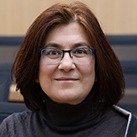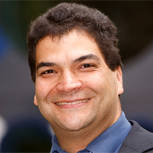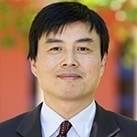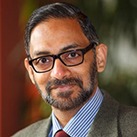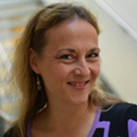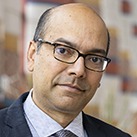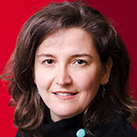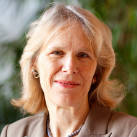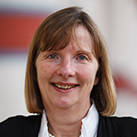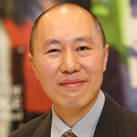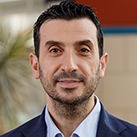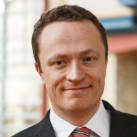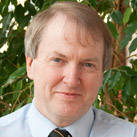Feryal Erhun
Professor of Operations & Technology Management, Cambridge Judge Business School
Academic Director, Wo+Men’s Leadership Centre
Professor Feryal Erhun’s expertise is in strategic interactions between stakeholders in supply chains. Feryal currently applies this expertise to characterise, quantify, and eliminate system-wide inefficiencies in health care delivery. In this context, her research tackled delivery of outpatient surgery in the US. Seeking to improve the process and cost of production in outpatient surgical care, she developed a model that aims to address the elements of outpatient surgical care with the opportunity to maximise value in this space. Since a key challenge in addressing health care costs is the understanding and development of accurate cost information, Feryal also worked on quantifying actual costs of care delivery.
Michael Barrett
Professor of Information Systems & Innovation Studies, Cambridge Judge Business School
Professor Michael Barrett’s research is on Service Innovation and Knowledge Exchange in healthcare. He has worked extensively with the World Health Organization in the development of their knowledge management strategy as a researcher, lecturer, and program director on executive education programs. Michael has also conducted research on implementation of a regional health information infrastructure and service innovation for emergency response and telemedicine in Crete, Greece. In the NHS, Michael has conducted research on the implementation of electronic patient records and decision support systems for multidisciplinary healthcare teams for cancer care in the UK NHS. He has also examined the introduction of digital robots for reducing dispensing errors and improving patient safety in hospital pharmacies. He is currently an implementation lead on the Cambridge and Peterborough CLAHRC in facilitating knowledge exchange and service innovation to get mental health research into action.
Mark de Rond
Professor of Organisational Ethnography, Cambridge Judge Business School
Mark is an ethnographer who is currently undertaking the research project “Surgeons at War”. Effective trauma care requires surgeons, anaesthetists, scrub nurses, and other critical care staff to share information, to give feedback, and to solve problems through communication. There is a premium on getting communication right, particularly where the stakes are as high as in Camp Bastion, Afghanistan. Surgical teams work under exceptionally challenging circumstances with no choice but to rely on each other for the provision of effective treatment, and without the benefit of time or perfect information. How do surgical trauma teams collectively decide what to treat, when, and how? Are there more, and less, effective ways of coordinating on tasks and responsibilities in treating battlefield casualties? How are novices socialised into their trauma team? How do teams improvise when responding to something they have not seen, or treated, before, or when equipment falls short? What are the effects of stress, conflict and fatigue on team performance? The project comprises an ethnographic study of surgical teams being prepared for a tour of duty by means of the MOST (Military Operational Surgical Training) programme, and the HOSPEX simulator.
Houyuan Jiang
Professor of Management Science, Cambridge Judge Business School
Professor Houyuan Jiang is interested in cost and service efficiency of healthcare operations. Currently, he is working on two projects. The first studies how service providers should release time slots to Choose and Book, an online outpatient appointment system. The second investigates a performance-based contracting scheme, which is compared with the existing payment-by-results contract framework in NHS.
Paul Kattuman
Professor of Economics, Cambridge Judge Business School
Director of Studies in Management and Fellow, Corpus Christi College
Professor Paul Kattuman is an applied econometrician with research interests that span health and development. The time series epidemic forecasting model that he co-developed has led to COVID-19 trackers for the UK and India, and is used by a number of public health agencies in making operational decisions relating to preparedness. Since the beginning of the pandemic Paul has worked closely with Public Health England and UK Health Security Agency in the East of England, and the governments of Punjab, Tamil Nadu and Kerala states in India, contributing statistical analysis and forecasts to support COVID-19 operations and management.
Eivor Oborn
Fellow in Health, Cambridge Judge Business School
Professor Eivor Oborn received her PhD in 2007 from Cambridge Judge Business School, where she is now a Fellow, working closely with Sandra Dawson and Michael Barrett on a number of research projects. She is co-lead on the implementation theme of the CLAHRC research project, funded by the NIHR. Eivor is also a Senior Lecturer in Public Management and Organisations at Royal Holloway University of London and is an honorary research associate in the Medical Faculty at Imperial College London, working in association with Lord Darzi on health reform. Prior to her academic career, she worked for 10 years in healthcare organisations. Her research interests include organisational change, knowledge translation, multidisciplinary collaboration and teamwork, health policy reform, technology adoption and service innovation. She has been an invited speaker to a number of research and practitioner audiences in the UK, Europe and North America. She has taught MBA and executive audiences in the area of leadership, teamwork and multidisciplinary collaboration. Eivor has published a number of book chapters, and in a variety of peer-reviewed journals, including Organization Science, Information Systems Research, Human Relations, Public Administration, British Journal of Management and Journal of Health Service Research and Practice.
Jaideep Prabhu
Professor of Marketing and Jawaharlal Nehru Professor of Indian Business & Enterprise
Vice-Dean for Faculty, Cambridge Judge Business School
Professor Jaideep Prabhu is interested in cross-national issues concerning the antecedents and consequences of radical innovation in the pharmaceutical and biotechnology sectors. In the context of these sectors, he has published widely on 1) what types of firms do most innovation and gain most from innovation, 2) the role of alliances and acquisitions in driving innovation, 3) the drivers of successful conversion of ideas into launched drugs, and 4) the long term stock market outcomes of mergers and acquisitions. He is currently engaged in studying how multinational firms in these sectors organise their innovation activities worldwide, the forces that drive their R&D location decisions, and the factors that influence the performance implications of these decisions.
Karla Sayegh
Assistant Professor in Organisational Theory and Information Systems
Dr Karla Sayegh is an Assistant Professor of Organisation Theory and Information Systems at Cambridge Judge Business School. Her research focuses on organisational change and transformation, with an emphasis on complex knowledge integration and coordination. The challenge of coordination is especially acute for healthcare organisations because they must ensure that critically ill patients get the appropriate treatment at the right time by the right specialists in the most cost-effective manner possible. Dr Sayegh’s recent fieldwork – centred on intensive care and emergency medicine – followed two of Canada’s leading teaching hospitals as they underwent a merger and relocation to a smart, state-of-the-art building. This research has traced how and why long-standing co-ordinating practices within and across the hospitals could no longer be sustained following the major changes and how the care co-ordination infrastructure needed to be rebuilt to restore reliable care.
Stefan Scholtes
Co-Director of the Centre of Health Leadership & Enterprise; Dennis Gillings Professor of Health Management, Cambridge Judge Business School
Professor Scholtes’s teaching and research addresses the challenge of service innovation in healthcare after COVID-19. While technology around us is changing constantly and rapidly, the way we provide healthcare services is stuck in a 20th century service model. This model is safe, but it has driven costs and workforce pressures for decades. The healthcare funding freeze after the 2008 financial crisis led to unsustainable workforce pressures and COVID-19 and its aftermath is now pushing this service model to its breaking point – with most devastating effects for the most vulnerable in society. Incremental improvement of the existing model will no longer suffice to address this societal challenge. What is required is a more radical change of the service model, with a focus on reducing patient demand and workforce pressures and on step-change improvements of clinical productivity. This is unchartered territory not least because, in contrast to disruptive innovation dynamics outside of healthcare, this radical change needs to be done “on the fly”, while maintaining safe services and high quality. Professor Scholtes’s teaching and research supports this service innovation effort. His research addresses the challenges of integrated care, in leveraging specialisation and organisational focus while avoiding care fragmentation for patients, and the incubation of vibrant local and national ecosystems of not-for-profit social enterprises that challenge the status quo and drive scalable innovative care models. Professor Scholtes’ teaching supports clinical engagement and clinical and system leadership through the development of educational programmes that bring together like-minded leaders. His work is strongly practice-based and embedded in collaborations with executives in health systems, hospitals and primary care practices in the NHS and the USA.
Dame Sandra Dawson
KPMG Professor Emeritus of Management Studies; Fellow (Organisational Theory & Information Systems), Cambridge Judge Business School
Professor Dame Sandra Dawson was Director of Cambridge Judge Business School from 1995 to 2006, and Master of Sidney Sussex College 1999-2009. Prior to Cambridge she was Professor of Organisational Behaviour and Deputy Director of the Management School at Imperial College, London University. Her research interests include organisational structure and change; technology transfer and knowledge sharing; health management and health policy. Amongst other appointments, membership of editorial boards has included: Quality & Safety in Health Care, Clinician in Management, International Journal of Human Resource Management and Public Management. She was a member of the King’s Fund, Policy Group on the Future, Structure and Funding of Health Services in the UK and was co-director of the Nuffield Trust funded Policy Futures for UK Health Programme and the Design & Establishment of the Leadership Council for the NHS. She has served as a non executive director of health authorities and as chair of an NHS Trust.
Helen Haugh
Associate Professor in Community Enterprise
Dr Helen Haugh’s interests are in institutional change in the health sector with a specific focus on the role of third sector organisations in delivering health services. On this theme, she has a book chapter forthcoming, and a paper under review. Helen is a member of the Social Enterprise Investment Fund review panel at the Department of Health.
Matthew Jones
Professor of Information Systems, Cambridge Judge Business School
Professor Matthew Jones’s research focuses on organisational changes associated with the adoption of computer-based information systems in clinical settings. Studies that he has undertaken include: formative evaluation of electronic record systems in several UK hospitals; a survey of electronic record system adoption in the Netherlands; investigation of doctors’ use of mobile computing devices; and a multidisciplinary investigation of changes in work practices associated with the introduction of a clinical information system in critical care.
Vincent Mak
Professor of Marketing & Decision Sciences, Cambridge Judge Business School
Professor Vincent Mak’s research lies in how people and firms make strategic decisions as they interact with each other, and what economic and psychological factors influence those decisions. The topics of his research include, for example, how R&D managers can be incentivized to align their interests with their company’s, how competing expert service providers might oversell their services, how users of congestible and cost-sharing networks make route choices, and how managerial committees make decisions as a group. He typically employs the insights and methods of experimental economics, game theory, and psychology to investigate his research questions.
Nektarios (Aris) Oraiopoulos
Professor of Operations and Technology Management, Cambridge Judge Business School
Aris’ interests lie in the area of new product development and R&D management, and particularly in collaborative settings such as joint projects between pharmaceuticals and bio-tech companies. Such projects are characterised by their highly uncertain nature and substantial costs, and therefore, mechanisms for managing risk and rewarding risk taking among the various partners are critical. In addition, he is interested in understanding how diverse perspectives regarding the key project metrics might amplify learning mechanisms, or alternatively, give rise to consistent biases that will undermine the project selection (eg new drug development) process.
Andreas Richter
Professor of Organisational Behaviour
Professor Andreas Richter’s research interests include: effective intergroup relations, organisational creativity, and teamwork. Andreas has worked on consultancy projects in the areas of team working as well as organisational creativity and leadership development. He conducted job application and self-management trainings, and is a client-centred counsellor (clinical and occupational settings). Prior to joining Cambridge Judge Business School, Andreas was Assistant Professor of Organisational Behaviour at Instituto de Empresa Business School, and a post-doctoral research fellow at Aston Business School.
Philip Stiles
Associate Professor in Corporate Governance
Co-Director of the Centre for International Human Resource Management (CIHRM), Cambridge Judge Business School
Dr Philip Stiles is an Associate Professor in Organisational Behaviour. Philip’s principal research area is in the management of people, primarily around the subjects of talent and performance management. He is also engaged in work on corporate governance, focusing primarily on the dynamics of boards of directors, and in the process of succession within companies. He advises a number of organisations in both the private and public sector.


